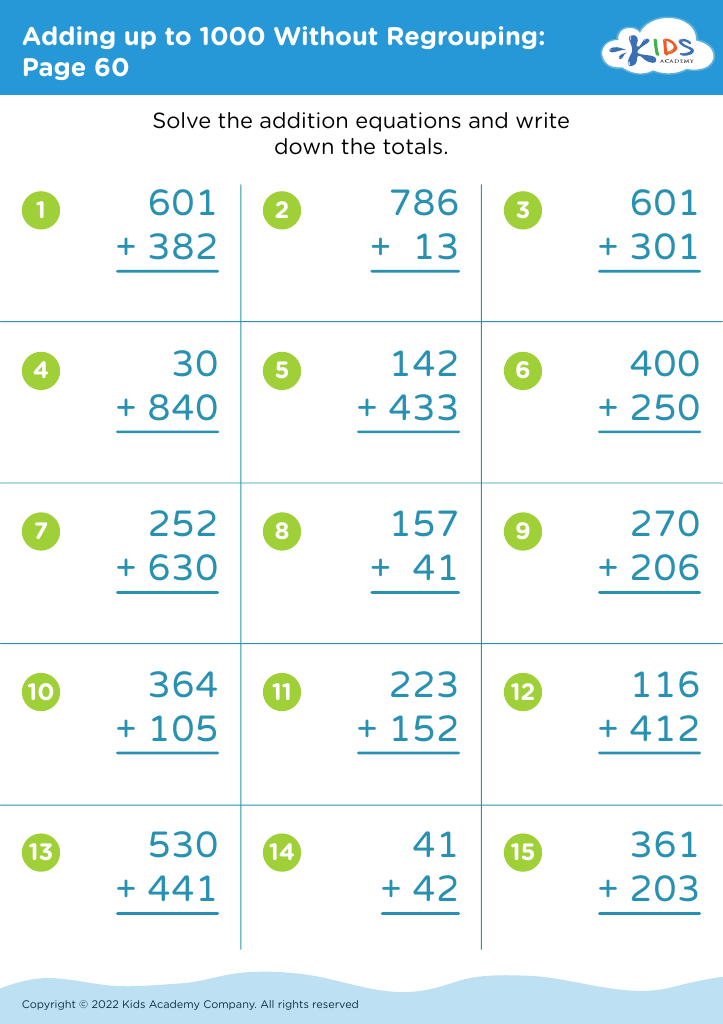Improve counting skills Adding up to 1000 Without Regrouping Worksheets for Ages 4-9
4 filtered results
-
From - To
Enhance your child's counting skills with our "Adding Up to 1000 Without Regrouping" worksheets, designed for ages 4-9. These engaging and educational resources provide students with the opportunity to practice addition in a straightforward way, reinforcing their number recognition and computation abilities. Each worksheet is crafted to support young learners in building confidence as they add numbers up to 1000 without the need for regrouping. Perfect for classroom use or at-home practice, this collection fosters a love for math while developing essential early math skills. Equip your child for success with activities that make learning fun and significantly boost their math proficiency!
Counting skills play a crucial role in early childhood education, especially for children aged 4-9. Teaching kids to add numbers up to 1000 without regrouping fosters a strong foundational understanding of mathematics. This skill enhances their ability to perform basic arithmetic operations, which are essential for their academic growth.
Parents and teachers should prioritize developing these counting skills because they contribute to overall cognitive development. Mastery of counting builds confidence and supports children's problem-solving abilities, making them more proficient learners in various subjects.
Additionally, strong counting skills help children recognize patterns and relationships between numbers, paving the way for more advanced concepts such as addition, subtraction, and eventually multiplication and division. As they engage with numbers up to 1000, children can better grasp real-world applications of math, such as budgeting or measuring, thereby establishing practical life skills.
By focusing on counting without regrouping, educators and parents can ensure students build a solid, unshakeable foundation in mathematics. This foundational learning experience not only impacts academic success in the early years but also provides a positive outlook towards math as they advance through their education. Therefore, nurturing these skills is essential for children's long-term academic journey.
















